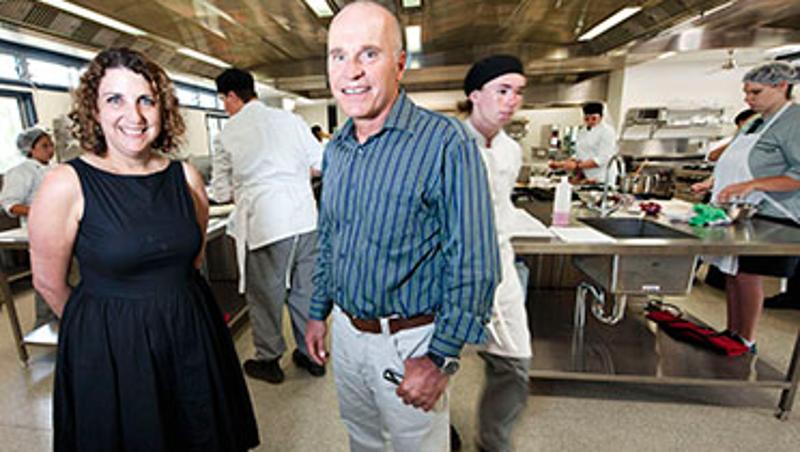
Outstanding teacher graduates who are placed in low socio-economic schools are kicking goals at home and Australia-wide with a QUT-led project recognised for a higher education philanthropic award.
The National Exceptional Teachers for Disadvantaged Schools (NETDS) project, developed by QUT Associate Professors Bruce Burnett and Jo Lampert from QUT's School of Cultural and Professional Learning, has seen 59 teachers employed in low socio-economic schools since 2011.
"Low socio-economic schools have a hard time finding quality teachers so we try to address that significant social issue of educational disadvantage by providing top graduates for those roles," Associate Professor Lampert said.
"It is hoped students' lives can be enriched."
A video of the program has been featured on YouTube.
Funding from the Origin Foundation enabled the scheme to be introduced on a national level, with five universities involved in training teachers to teach disadvantaged youth.
Another two universities will come on board in 2015.
"The scaling up of the program to other universities was only possible through philanthropic contributions to the project," Associate Professor Lampert said.
The program's funding partner the Origin Foundation received the distinguished 2014 Outstanding Philanthropic Support award for Higher Education which was announced by the Business/Higher Education Round Table this week.
In the NETDS program the highest performing students are hand-picked half-way through their teaching degree and then closely mentored for the remainder of their course.
"In a specialised curriculum they are taught a deepening understanding of poverty and disadvantage," Associate Professor Burnett said.
"Students also become very familiar with low socio-economic school settings and complete three practicums and an internship at disadvantaged schools."
Low socio-economic schools are identified on the Index of Community Socio-Educational Advantage (ICSEA), a measure to compare schools, particularly in national tests.
Associate Professor Lampert said 90 per cent of the program's graduates were employed in low socio-economic schools.
The program also received a recent Australian Research Council Linkage grant to conduct a longitudinal study into the effects the quality teaching from the exceptional teachers have on school communities.
In December, QUT will graduate a further 29 NETDS trained teachers for 2014.
The Universities of Newcastle and New England began their NETDS programs in 2014 and have identified 56 exceptional teaching students between them.
Deakin University and the University of South Australia joined the NETDS in October and their first cohorts of students begin the program in 2015.
A further two universities will join the scheme next year and it is anticipated that up to 210 new NETDS trained teachers will graduate annually based on seven universities offering programs across the country.
The program has also been supported by non-profit Social Ventures Australia which invests new capital and financial models to help solve entrenched problems.
Executive Dean Faculty of Education Wendy Patton said the award was important recognition of the efforts to change educational outcomes for disadvantaged youth.
"The faculty is extremely proud of the relationship with the Origin Foundation and this is excellent acknowledgement of its support for our work in this program," she said.
Media contacts:
Debra Nowland, QUT media officer (Mon/Wed/Thur), 07 3138 1150 or media@qut.edu.au
After hours, Rose Trapnell, 0407 585 901


